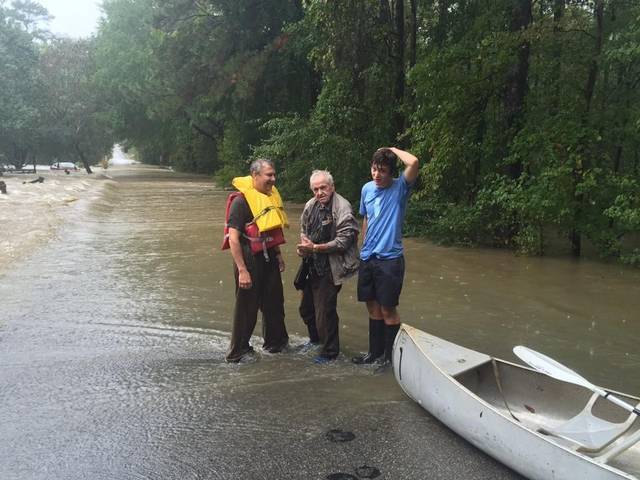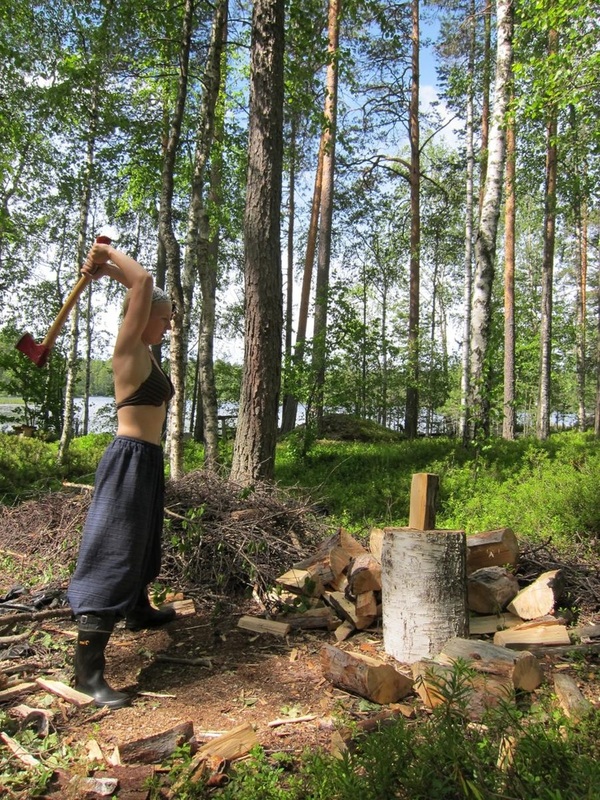|
This week, I encourage you to write about the work you do that you hate.
It might be chores around the house or stressful encounters at the office. It might actually be the very job you have held for the past twenty years and are too afraid to leave. What work are you doing that you hate? Write about this. Write about why you hate it. Write about when you began to hate it, and how that hate has changed over time. Allow yourself to let loose onto paper all the feelings of resentment and anger and despair you feel about this work. And when you are done, get up and walk away. Feel the difference that facing it makes. Begin to open to the possibility of change.
0 Comments
Recently after the flooding in my hometown of Columbia, thousands of people heard the heart beat of a different kind of work as they stepped up to lend a hand. Clean up. Make a meal. Donate clothes. Give money. Hug a neighbor.
In October, we have been exploring the meaning of work in our lives here at Earth Joy Writing. This week, I encourage you to think about the work you do that you might not think of as work. Perhaps you care for a child or an elderly parent. Perhaps you keep a garden. Perhaps you speak kindly to a person at your grocery store. Try to rethink about all of this as work, as preparation for Earth Joy Writing the world as we want it to be. Just because you are not paid for something with money does not mean that what you do each and every day is not work. Begin to think of it as work. Value it. Value yourself. Last week, my hometown of Columbia, South Carolina was devastated by flood.
As I do, I responded to it by co-creating poems with Facebook friends. For me, poetry is the way to say the feelings even when they are overwhelming. Here are my 2 poems. Flood Days Saturday lay to rest an officer under Serendipity of moisture from the coast A blessed tomorrow to offer Rain and perturbation at most Solidarity in the Acres giving Alms to translate ghastly into comfort Sunday deluge during sleep Serenity broken by antediluvian baptism Hope and honor and salvation Logjam on the radio Helicopter rescue lines fall Into grateful golden connection Monday a fresco of spaghettification Rise and boil coffee as Devine Becomes a fluid meditation Colloquial and vacuous words spoken More restless expulsion Sleepless and prayerful devastation Tuesday hope and sunshine Volunteer under stillness of apocalypse Until mischievous dams recede Strong and fragile cannot breathe Load cars and then with gratitude Reenter home in frustrated relief Wednesday pray to Yemaya and water And your mama in her faithfulness While trucks pour rocks into the mess And sand is dumped by Chinooks Repeat the word grateful till Your back teeth crumble into goodness Flood Nights Sleepless I see you, tossing and turning, Exhausted except for the dreams burning Thankful within you of what could have been Wet vac and suction, loss and slow motion Warrior pose as you stand in the dark Soaked in your heart watching more dying Sunshine comes slowly on nights like this Inopportune moments of shadows blocking Moist morning coming once night is done.  According to the film The Story of Stuff, 99 percent of the objects we acquire and bring into our homes is disposed of within six months. This means we need more stuff. So we keep working. For the stuff. We split the connections between ourselves and the world around us in order to do this. We choose to ignore the natural resources being used to create and carry the stuff. The chemicals used to produce and preserve the stuff. The trains and airplanes and cargo ships and containers that carry the stuff to us. The trucks that take the stuff from our curbs when we throw it “away.” The Earth and water where the stuff gets dumped. All this splitting from the world begins to split us from ourselves. It destroys our fragile humanness and our connection to our fragile home. What does it mean to be human? What does it mean to do human work? What effects does the work we are doing have on the future? These are the questions that we ask in Earth Joy Writing. We began last week to look at the work we do in a new light. Here’s another writing prompt to help you do that: Write about the work you hate Think about the work you do that you hate. It might be chores around the house or stressful encounters at the office. It might actually be the very job you have held for the past twenty years and are too afraid to leave. What work are you doing that you hate? Write about this. Write about why you hate it. Write about when you began to hate it and how that hate has changed over time. Allow yourself to let loose onto paper all the feelings of resentment and anger and despair you feel about this work. And when you are done, get up and walk away. Feel the difference that facing it makes. Begin to open to the possibility of change. We humans are good at splitting. We split wood. We split atoms. We split mountains to make way for roads and for coal. We split genders. We split ourselves into good and evil. We split ourselves from the natural world that sustains us. We stand at a distance from ourselves and from others, and we call it normal; we call it sane.
If we are to stop the destruction of the environment, we will have to stop the splitting of ourselves from our work. How did we become a society of people who have split what we want from how we work? How can we continue working in disempowered, disconnected, and destructive ways when what we want is health, balance, and peace? This split, this way of working, comes from a worldview in which humans and the natural world are viewed as objects. And in order to survive in this world, we have turned ourselves into objects and turned toward the acquisition of objects in an attempt to find comfort. In the next few weeks, I will share some writing exercises that will help you stop splitting yourself from your work. Here’s the first one: Write about the work you value. Think about the work you do that you might not think of as work. Perhaps you care for a child or an elderly parent. Perhaps you keep a garden. Perhaps you speak kindly to a person at your grocery store. Allow yourself to view all of this as honorable work, as preparation for Earth Joy Writing the world as we want it to be. Write for five minutes about this work. Just because you are not paid for something with money does not mean that what you do each and every day is not work. Begin to honor it as work. Value it. Value yourself. |
AuthorCassie Premo Steele, Ph.D., is the author of 13 books and a writing coach. Archives
November 2015
|




 RSS Feed
RSS Feed